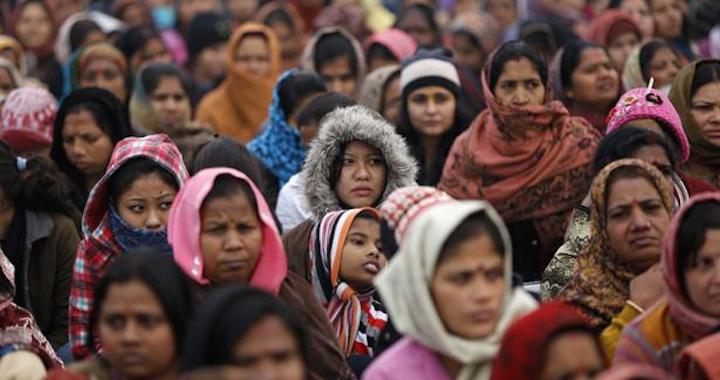Katra village in Uttar Pradesh is now famous. Talked about. It was scene to one of those horrors which begs to be the harbinger of change, which comes to symbolise a cultural malaise, a societal disease so pervasive that only a tragedy such as this could bring it properly into focus. Katra will now be remembered as such a place. Katra will be a bad word. Two sisters, members of the Dalit caste, known as Untouchables, were gang raped, strangled and then hung from a mango tree. They were 14 and 15 years old.
Rape is endemic in India, with a reported rape every 22 minutes. Add to that the unreported rapes, and the situation is obviously out of control. Added to the problems we in the West understand about rape convictions (where the conviction rate is universally under 10%) is the problem of caste. Dalits hold no positions of authority. When they bring complaints about crimes committed against them, they are often reporting higher castes to other members of that same caste. There are countless cases of Dalits and other low castes being completely ignored, even in cases of rape and murder.
Sadly, India already had its iconic rape case, when a 23-year-old was gang raped and killed while on a bus. A moving bus. Full of people. That instigated a change in the law. But not in the culture.
It is easy to think of these cases as other, as so separate from our existence as to be comfortably ignorable. We’re not like that. That would never happen here. I’m sure in parts of the US sixty years ago, stories of lynchings conjured similar feelings of distant empathy, of remote shock.
Related: The Repression of a National Shame: History, Nooses, and Lament
But perhaps the very thing which gives us comfort is the same instinct which creates these tragedies.
Them. Us.
We are not like Indian rapists that leave girls swinging from the branch of a mango tree. We are not like the racist posse that leaves young black men swinging from the branches of a poplar tree.
There is us. There is them. We are different. We might even pretend definitions for that difference. Race. Religion. Technological advancement. Democracy.
But it is precisely that sort of alienation that allows these attacks to happen. Those girls aren’t human. They are Dalits. Worthless. We are the right, the deserving, the powerful. Those black men are getting out of control. They are uppity. We know how things should be.
In both cases, the people perpetrating these horrors are preserving the social order. That is so important. Both the lynching and the gang rape of an Untouchable are about preserving social order as much as they are about violence. Death is the means to the end.
“This is the way the world is supposed to look, ” they say to themselves, and to the proverbial us. There is always an implied audience.
This is not the way Jesus saw the world. It is not the way we are to see the world. The Good Samaritan helped the Jew. The centurion with the servant was a singular example of faith and obedience. The woman at the well was not a follower of Jesus, and their very conversation was a violation of the social order. Yet she became one of the earliest preachers of the gospel.
We are told that there will be sheep, and there will be goats. There will be a judgment. There will be a reckoning. Not everyone will have the same fate on that day.
But that is when the judgment happens. While on earth, we are all God’s children. There is a singular us, over 7 billion strong and counting.
There is no them.
Say it again. There is no them. Atheists. Homosexuals. Universalists. Muslims. Liberals. Rapists. Schizophrenics. Fundamentalists. Sex traffickers.
Some people, Christian and non-Christian alike, complain of the image of us as sinners. And there is reason to not shy from the saintly title applied by Paul in his epistles. But as sinners, we lie in the muck with the rest of humanity. As sinners, we are no better. We are not separate. We are not “us” to their “them”.
It is our job to help the sheep hear the shepherd’s call. No one is so far astray that they cannot hear that call. “There will be more joy in heaven over one sinner who repents than over ninety-nine righteous persons who need no repentance.” (Luke 15:7) It’s not a small part of the gospel, a sideline to add on when we can, just when it’s convenient. It was and is central to Jesus’ ministry, to his entire plan of salvation.
Them = Goat. We don’t choose goats. We don’t get to, and crucially, we shouldn’t want to.
There is no them. Let us remember that. Let us pray that those words emblazon themselves on our hearts. Let us always see others as our brothers and sisters, children of the same father. It is, quite simply, the truth.
There is no them.

